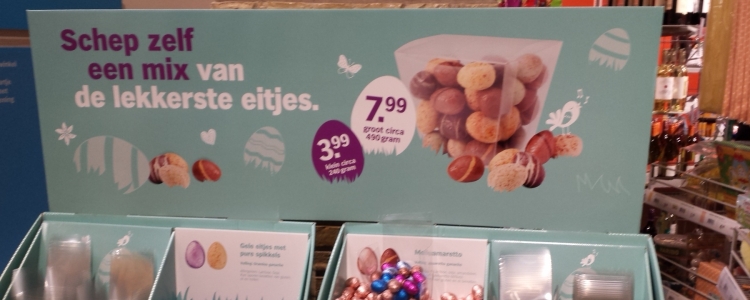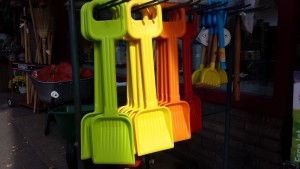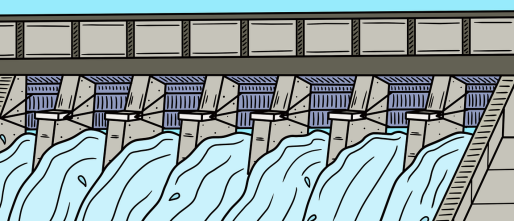Expanding your Dutch vocabulary is easier than you think. The only thing that you need is a certain mindset and attitude and the willingness to play. Once you understand the principles, you’ll understand how easy it is. At the end. learning new vocabulary is like buying chocolate Easter eggs. You can take as many as you like. But… you’ll only get plenty if you are really greedy! 🙂
The first thing to realize is that Dutch words are all around you. They are not only in your text book! If you live in Holland, you’ll be surrounded by them. By the way, don’t worry if they only speak English at work. Just go to a supermarket and you’ll see it is a real learning palace!
The good thing is that you’ll see many words, combined with pictures. Then it will be very easy to remember. On this picture you see the word eitjes, probably you must have guessed that it means little eggs, right? Also, if you taste it, you’ll remember it even better 🙂
There are a couple of things to observe here… First of all eitjes means small eggs. You also have the word eieren (eggs) which looks like an old English word eyren (later it got replaced by the old Norse word egg).
It could be handy to know the difference between eieren & eitjes. Eireren are normally the big ones from birds. Insects, lice etc never produce eieren in Dutch… They only lay eitjes….
Then you see the words schep zelf… Can you see that schep somehow looks like scoop in English? So now it is simple… You can take some scoops of chocolate eggs…. The word zelf means that you can do it all by yourself, without the help of someone else. For example: ik leer zelf Nederlands means that I learn Dutch all by my self…
But… it does not stop here… Dutch has one basic rule: words are often less precise then in English. Dutch words can have many more meanings! So now, we are only starting… make sure that you open your mind!
First of all: de schep is like a big spoon. You can say: ik drink mijn koffie met een schepje suiker. Een schepje suggests a little spoon. If you say met een schep suiker then Dutch people will probably understand that you drink it with loads and loads of Sugar (it is a whole scoop right?) … A Dutch person could say this: het kost scheppen geld and then it means that something is very expensive! You’ll have to scoop a lot of money!
Then you have schepijs. That is icecream that they serve with a spoon….
Een schep is also something that you can use in your garden. You can use it for digging. Ik schep zand makes perfect sense in Dutch
Now it is time for the next jump… when God created the earth then how did he start? Probly he just started digging somewhere. That is why scheppen is also a logical word for to create. God is een schepper (God is the creator) and of course we also have de schepping (which is creation)…
So now, all of a sudden new sentences are perfectly within your reach. Just have a look at this sentence: dit schept nieuwe kansen is not difficult to translate. It simple means that it creates or gives more chances / opportunities.
You could call it word hunting…
it is a game that you can virtually play everywhere…
The good thing is also this: once you see words in all different kinds of places, then it will be very easy to remember them! You see them again and again, so actually there is no need for memorizing. All you do is to associate things, you bring things together in a very relaxed way and this is exactly how your brain likes to absorb new information!
Here are some last tips. The first thing that you do is that you start noticing words. Make sure that you approach it in a playful and imaginative way and also realise that contexts are always very important. For example: in Dutch you also have the word creëren which looks a lot closer to create in English. Schepping is not exactly the same as creatie. Somehow scheppen sounds a bit more biblical and creëren sounds more artistic. So, if you learn new words always remember that context is always very important.
So, what would you think? Could you imagine that there is so much new stuff to learn from a simple display in the supermarket? Here is another thing: lekker is tasty and lekkerst is most tasty… can you see how easy it is.
So hopefully soon enough when it comes to new vocabulary you’ll say this: het is een eitje. That means that it is very very easy!





